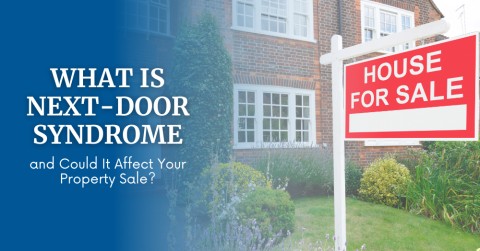
Let’s be honest, we’ve all been a nosy neighbour at some point, haven’t we?
A ‘for sale’ sign goes up on a property in your street, and within minutes you’re online to find out what it’s on the market for.
Soon enough, you’re marvelling or shuddering at your neighbour’s taste in décor and deciding that your home is bigger, smaller, smarter or scruffier than theirs.
There’s nothing wrong with this; in fact, if you plan to sell up yourself, it’s useful market research. But it’s also important to keep things in perspective, or you could develop what is known in the property industry as Next-Door Syndrome.
This term refers to a seller whose price expectations are based solely on what their neighbour’s property sold for. (Usually, people think their home is worth at least as much as their neighbour’s, or a bit more.)
While knowing what other properties in your area achieve at sale is helpful, it’s important to look at the whole picture. Other things to consider include:
- Square footage. Is your neighbour’s property the same size as yours?
- Selling price. You probably saw the asking price when you did your online snooping, but your neighbour may have had to accept a price reduction.
- Completion time. Sometimes, it takes half a year to complete a deal, so the price may have been agreed six months earlier when the property market was in a different place.
The impact of Next-Door Syndrome
Focusing too much on your neighbour’s property deal instead of what’s best for you in the current market could mean you get your pricing strategy wrong and prolong the whole sales process.
The risk is you overprice your property and deter savvy buyers. After months of lacklustre interest, you’ll have to drop the price.
Valuation strategy
When you get three agents around to look at your property, don’t take their valuations at face value. Ask them how they reached their conclusions.
A good agent will welcome the opportunity to explain their calculation and the different data sets used to determine a property’s value.
Also, be aware that some agents deliberately overvalue a property just to win business.
Once they’ve secured the listing, they’ll quickly suggest a price reduction.
Go for an agent who is ambitious but honest. Selling a property is a huge undertaking, and it’s important that you trust your sales team.
For a free valuation, contact us today.
